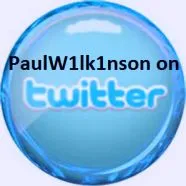 This weekend we were discussing the popularity of DNA testing sites like Ancestry.com (or Ancestry.ca in Canada) and 23andMe.com (the latter’s name referring to the 23 pairs of chromosomes in normal cells) which, along with a handful of other similar companies can provide a profile based on the DNA sample you send. If you’re unfamiliar with the concept, it involves mailing your spit — the preferred term is saliva — to a testing site where you are then supplied with fairly specific information about your ethnic roots. A broader term to describe the services of such companies would be genealogy testing.
This weekend we were discussing the popularity of DNA testing sites like Ancestry.com (or Ancestry.ca in Canada) and 23andMe.com (the latter’s name referring to the 23 pairs of chromosomes in normal cells) which, along with a handful of other similar companies can provide a profile based on the DNA sample you send. If you’re unfamiliar with the concept, it involves mailing your spit — the preferred term is saliva — to a testing site where you are then supplied with fairly specific information about your ethnic roots. A broader term to describe the services of such companies would be genealogy testing.
Not all that surprising is that Ancestry website’s roots lie in the Church of Jesus Christ of Latter Day Saints, a quasi-Christian religion which has specialized in genealogical research owing to a belief in something called “baptism for the dead;” a form of proxy baptism for departed relatives carried out in the Church’s temples on behalf of people who did not have the opportunity to receive the rite (or ordinance) in life. The more detailed version of their belief is that the departed can then accept or reject the rite carried out on their behalf, as in, ‘I know you drove 300 miles to the nearest temple so I could get into the Kingdom of God, but I think I’ll continue to try my odds as an atheist.’
Without getting into details about the nature of the reports people received, I wanted to share here three reasons why I think the tests resonate with people outside of the CofJCofLDS.
Identity
I think that people today want to know who they are.
It’s interesting to consider as we approach the Christmas season that the genealogies at the beginning of The Gospels often create many yawns as the text are read, not to mention the dread of being chosen to do such a reading and having to navigate the pronunciation of all those names. But the people in Biblical times knew their family history just as sure as you know several dozen user names and passwords today. They would even recognize areas where we’re told the texts we have contain shortcuts or deviations from the standard form; as well as the scandal of inclusions like Rahab. Seriously, Rahab? Not in my family tree, please.
If you have a child who has memorized the Periodic Table of Elements; it’s the same type of crowning achievement to be able to go back generation after generation without mistakes. (‘Morris was the son of Franklin, who was the son of Percival, who was the son of Ira, who was the son of August…’)
Today, we have so many children who were adopted. Children of divorce. Children who were supplied false information. Many people aren’t entirely sure who their fathers and mothers are, let alone any history dating prior to those parents.
So DNA testing is a step down that path. Which brings us to…
Community
Ethnicity is only one component of identity. A love for a certain branch of the arts or a certain sport would be another. There are those who identify in terms of their political leanings or their faith. There are yet others whose primary identification is in terms of where they reside now.
But knowing ethnic roots gives one identification in terms of a nation or tribe. Being Navajo, or Italian, or Norse gives one a potential community with which to connect. (The websites also potentially provide means of making those connections more specific, including connecting people with lost siblings.)
Of course, knowing such things also has a certain caché, which brings us to…
Trendiness
This Christmas, many people will find a DNA testing kit gift-wrapped under the tree. At a list price of $99 (though frequently on sale) this type of gift is a luxurious, First World indulgence.
The same people who need to know their DNA are the same ones who also need to know their Myers-Briggs type (mine is ASAP) or their Enneagram number. In a previous century the Astrological Sign would suffice for some people. (I don’t believe in Astrology, but then again, we Geminis are naturally skeptical.)
DNA testing is the latest rage. Some will see it as a diversion, but others are heavily invested in the results. If those findings differ from anything you ever believed about yourself up until that point in time, I can imagine the results could go as far as to be life-altering.
Health
Update: I decided not to discuss the health factor for the reason outlined in a reply to a comment, but I do encourage you to read the response from @George whose story says it better than I would have.
Appendix 1 – Who Am I by Petula Clark.
Appendix 2 – Who Am I by Casting Crowns
Appendix 3 – The I Am Poster












